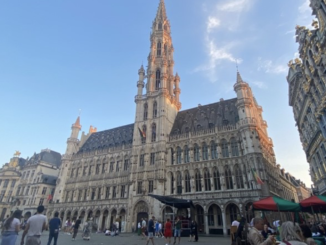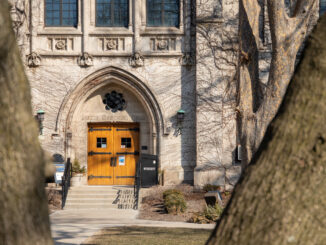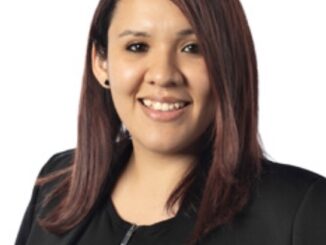
By Itzel Chavero
After election results projected Donald Trump as the 47th President of the United States for a second term, the future for millions of undocumented people all over the country are left with uncertainty, including undocumented Dominican students.
With Trump’s plans for mass deportations as well as employing stricter laws on border and immigration policies, more than 11 million undocumented people living in the United States are left with no other option but to live with doubt about what will happen on Jan. 20, 2025.
This population includes the children of immigrants who were brought to this country when they were just kids. Some of them are now under the Deferred Action for Childhood Arrivals (DACA) and must question what will happen to their status.
In 2017, Dominican was recognized as a sanctuary campus adopting policies that protect undocumented students and staff from immigration enforcement.
Trump has consistently tried to repeal DACA and terminate the program for good during his first term in office. In 2020, the Supreme Court blocked this order, which successfully stopped Trump from terminating the program. As of June 2024, it also benefits roughly 530,000 active recipients.
In September 2023, a federal court district judge from Texas ruled the program unlawful. Leaving the future of DACA at a limbo.
Precious Porras, vice president for Justice, Equity, and Inclusion, said she will remain committed to ensure the safety of its undocumented students.
“JEI will remain committed to protecting first-generation [students], low-income students and students of color,” she said. “That’s who we have always served.”
Glena Temple, president of Dominican University, released a statement on the university’s commitment to the welcoming, support, and safeguard of all students regardless of immigration status.
“While there are still many unknowns about policies that will take shape under the new administration, we want to assure our community that we uphold out Sanctuary Campus Covenant,” she says. “Our commitment to supporting undocumented students and their families remains steadfast.”
In addition to being home to a majority Latinx student population, Dominican is also recognized as a Hispanic Serving Institution. Aside from enhancing the academic success of Hispanic students, HSI focuses on fostering a community with diversity not only in the student body but also employing Hispanic staff and faculty.
Junior Maidrilim Vasquez Lopez, a Guatemalan American, first-generation student, has been a DACA recipient since 2021 and is also a Dream U.S. student, a scholarship program dedicated to support DACA students’ pursuit for a higher education. Dominican is one of the many partnered schools with The Dream U.S.
Maidrilim, who is originally from Alabama, decided to leave home and come to Dominican since affording school in her home state would be too expensive as she would have to pay international student prices due to her legal status.
On Oct. 10, Senator Dick Durbin publicly shared Maidsrilim’s journey in the Senate Floor. She used this as an opportunity to shed light on Dreamers and the struggles they face for being undocumented.
As her future remains pending, she hopes Dominican will only strengthen their support towards undocumented students and hopes they can unite forces with programs like The Dreams U.S.
“I think Dominican should [help] undocumented students [and] let them know that they can finish a degree here,” she said.
Senior Andrea Calderon is one of the many students at Dominican that are citizens of the United States but have family members at risk of the new immigration policies.
“I’m grateful to be born in this country and have all these opportunities and go to school since I know not all students have that same opportunity,” she says. “With Trump elected, I thought about all the undocumented students, the Dreamers, people in the process of coming here, especially my family.”
Dominican has committed to providing available sources across campus, which includes offering free legal clinics through the Center for Cultural Liberation to assist students who may be eligible for paths to legalization. These clinics are not only offered to students but also their families.
“Accompaniment is the foundation of sanctuary at Dominican,” Temple said. “Together, we intend to lean into this critically relevant mission and walk alongside our students at risk.”



